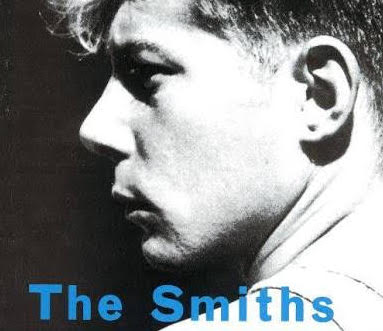by Lynne Rodgers (of North Brisbane Psychologists)
“Shyness is nice, and Shyness can stop you From doing all the things in life You’d like to” -- Ask by The Smiths

Social anxiety, also known as social phobia, is not shyness. Psychologists distinguish between shyness – a personality disposition or trait (like having brown eyes) – and social anxiety, which is a fear of social judgment. It has little to do with being an introvert or an extrovert. With social anxiety, we are convinced that other people are judging us negatively. While many of us find public speaking or walking into a crowded room quite nerve-racking, those with debilitating social anxiety take great steps to avoid these situations.
Social anxiety is a response to an internal primary emotion – fear. Perhaps when we were growing up somewhere along the way we learnt the message that it is not OK to be us – that we will be rejected, blamed, judged or criticised for who we are, what we say, how we look or what we do. We perceive the consequences of this criticism will be humiliating and devastating. In fact, so bad we fear we will not survive the shame. As children and young people we might have learnt this in a variety of ways: in a family where parents could only express anger and criticism; at school if no one wanted to play with us or through encounters with high school bullies, disapproving relatives or punitive workplaces.
To keep ourselves safe from having more of these experiences we avoid social interaction, we might find ourselves turning down social invitations or just ‘not showing up’. Pretty soon, we find ourselves becoming socially isolated – and feeling one of the most taboo words in our culture – lonely.
To counter a fear of social interaction, we may try to be perfect. We might overly obsess about our appearance, clothes, expressions, words, and mentally rehearse what we will say in advance. But far more common for people with social anxiety is the “backwards rehearsal” – we go back over, audit or ruminate about our daily encounters – “Why did I say that? I shouldn’t have said that! They will think I’m such an idiot!”, “Maybe I have offended them?”, “I only got 5 likes on that post; I shouldn’t have posted anything!” The same neurons are firing in the same patterns and our brain is literally stuck thinking in circles or loops.
Because all of this takes so much energy we often go back to square one – avoiding and minimising social interaction. The cycle intensifies and we might find we avoid doing things we need to do, like going to work, school or uni, connecting with friends and family, or trying new social activities that would actually improve our mood.
So what’s the answer to this cycle of anxious thoughts and avoidance? The first step is to press pause and notice what is going on. Stop, look inside yourself, breathe, notice where is the emotion is in the body? What emotion is it? Is it still or moving? Hot or cold? Heavy or light? Underneath the protective emotion of anxiety, you may sense a more specific emotion like: “I’m angry” or “I’m sad” or “I’m scared.”
A good therapist can help you gently discover where these negative thinking self-beliefs have come from, and over time help you to process and release stuck emotions. Then you can contact the strong, confident part of yourself. In therapy, you may also learn specific skills such as, saying “no” to people with firmness and kindness – letting them know what is OK and what is not OK with you, and expressing what you feel and need respectfully. Learning appropriate eye contact and open body posture can also be helpful. Sometimes we simply grow up in homes where such skills are not taught or modeled. Perhaps those around us also fear or avoid other people.
This inner work can literally change your brain – new patterns are formed in the way the neurons wire together and the old mental loops are broken.
A good therapist can help you gently explore the joy of social connection. Our brains are rewarded by face-to-face connection – they are hardwired to be social. This is regardless of whether you identify as anintrovert or extrovert. When we are in face-to face meaningful contact with another human, pleasurable and rewarding neuro-chemicals like serotonin and dopamine are released. Smartphones and social media are great communication enhancers, but as “human animals” we become lonely and distressed when they replace face-to-face interaction. The discovery of mirror neurons – neurons in our brains that switch on to mimic or copy another person’s facial expression when we are experiencing empathy in a relationship demonstrate this.
Many people who come for help with social anxiety face a huge obstacle in just getting to their first psychology session. The fear of judgment and vulnerability can seem overwhelming. Treatment for social anxiety involves coming more than once and with the gentle support of your therapist, working on difficult thoughts, emotions and physical sensations. You and your therapist will work slowly together on situations you would like to face but have worked hard to avoid for a long time. Staying the course of therapy (for example, at least 6 sessions if you have a Medicare referral) can create great rewards in terms of a bigger, richer life where you become more able to accept yourself and enjoy the company of other human animals!
